Allergy Drama Unfolds as Woman Spurns Remedies and Forces Management Into a Workplace Showdown
Ever wondered if your coworker’s perfume could spark an office-wide crisis—even when no one’s actually wearing any? Welcome to the bizarre world where fragrance allergies meet workplace drama, turning a simple 9-to-5 into a full-blown saga of “sniff tests” and scent-free demands. While we all crave a little comfort during work—be it a plush chair or a desk that feels like home—one employee’s allergy to invisible perfumes has left her colleagues feeling bullied and bewildered, despite attempts to keep the peace with seating changes and masks. In a place where fresh linen-scented trash bags exist, navigating these sensory minefields is tougher than ever. So, where’s the line between reasonable accommodation and over-the-top workplace chaos? Buckle up, because this scent story will have you questioning everything you thought you knew about office life and allergies. LEARN MORE.
We all need our share of comfort while at work. For some, it’s having a cozy chair; for others, it’s decorating their desk to feel more at home. And for a few, it’s about keeping allergies under control.
But one workplace descended into chaos after an employee began claiming that her coworkers’ perfumes were making her ill — even though no one was actually wearing any. Despite management offering solutions like moving her seat, wearing a mask, or working in a separate area, she refused, insisting everyone else should go completely “scent-free.” Now, her colleagues say they feel targeted and bullied, and things have escalated so far that the manager has started conducting “sniff tests” to keep the peace.
Allergies can be tough to manage, especially in shared spaces
Image credits: Getty Images (not the actual photo)
An employee seeked advice online after their perfume-allergic coworker made office life miserable for everyone
Image credits: Curated Lifestyle (not the actual photo)
Image credits: shrieks-and-creaks
The author went on to share more details about the situation
People with fragrance sensitivities can experience symptoms like itchy skin, redness, and even blisters
These days, it feels like everything has a fragrance. We’re not just talking about perfumes, candles, or soaps anymore. You’ll find “fresh linen” garbage bags, “lavender breeze” toilet paper, and even “ocean mist” dishwashing liquids. It seems like manufacturers are on a mission to make everything smell like a spa or a flower shop. But here’s the catch: not everyone enjoys this sensory overload. For some people, all those pleasant scents can actually be a real headache, literally.
Turns out, fragrance sensitivity is more common than you’d think. A large U.S. survey found that almost one in three people, about 30%, reported being irritated by scented products used by others. Around 19% said they had adverse health effects from air fresheners, while 10% reacted to scented laundry products vented outside. Clearly, what smells heavenly to one person might be pure torture to another.
According to the American Academy of Dermatology, around 2.5 million Americans are actually allergic to fragrances. And this isn’t just about sneezing or watery eyes. When you use scented lotions or soaps, the chemicals can seep into your skin, causing irritation. In fact, fragrance allergies are one of the leading causes of cosmetic contact dermatitis, a condition that makes your skin red, itchy, and sometimes blistered. Not exactly the kind of glow-up anyone wants.
And here’s the wild part, these allergies don’t come from just one or two ingredients. Nope. More than 3,000 chemicals are used to create the scents we find in everyday products: everything from deodorants and shampoos to detergents and makeup. With so many mystery blends floating around, it’s no wonder some people’s skin or sinuses decide to revolt.
It’s important to stay away from areas where strong scents are present to help prevent allergic reactions
So, what can you do if you realize fragrances make you feel sick or itchy? The first step: go scent-free whenever possible. Look for products labeled “fragrance-free” or “unscented” (yes, there’s a difference, one means no scent added, the other might just mask it). Swap your regular detergent for a hypoallergenic one, skip the air fresheners, and maybe stick to good old-fashioned fresh air for that “clean smell.”
If you know you’re sensitive, try to steer clear of common areas where perfumes linger, like elevators, conference rooms, or crowded events. Scents tend to cling to fabrics and float in the air long after someone leaves the room. If your workplace or social space allows it, politely mention your sensitivity. Most people don’t even realize their perfume cloud might be someone else’s migraine trigger.
Another smart move? Keep a small air purifier near your workspace or bedroom. It can help filter out airborne particles that might irritate your skin or sinuses. Think of it as your personal “fresh air bubble.”
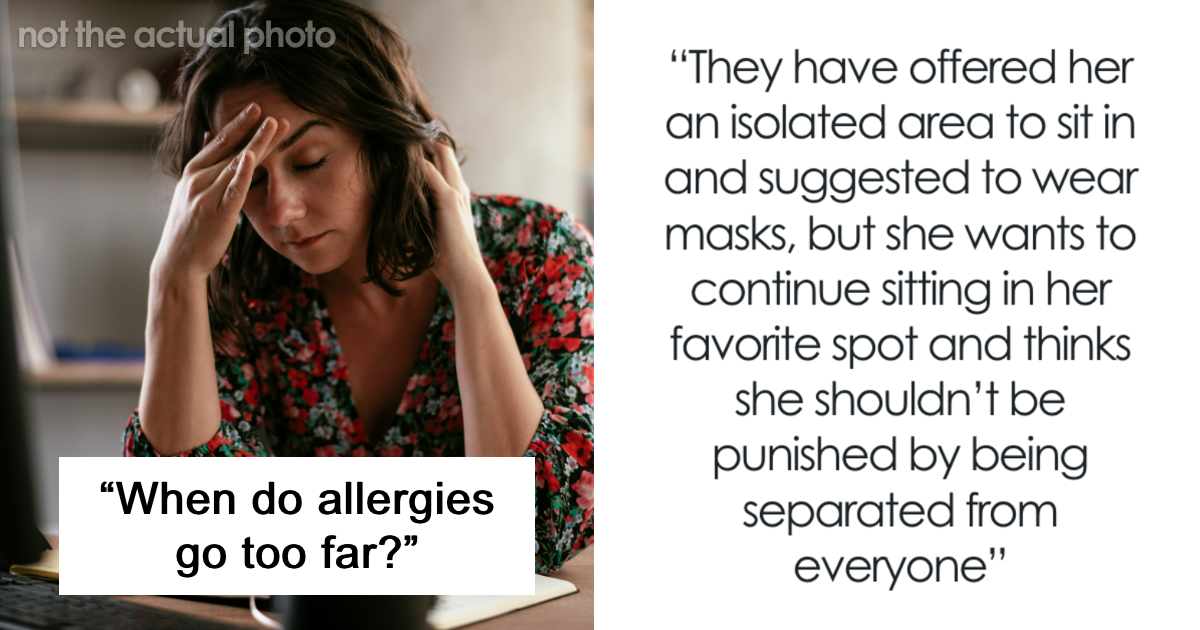

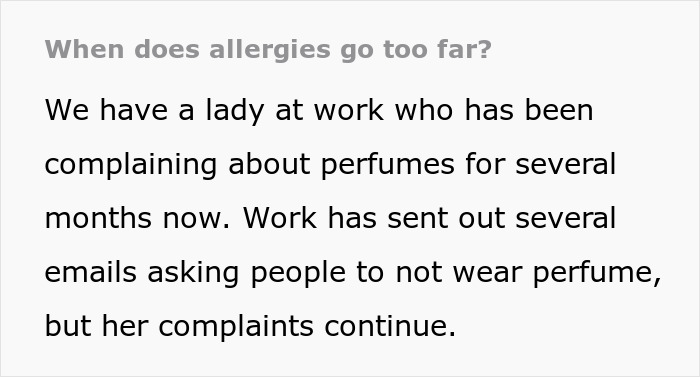
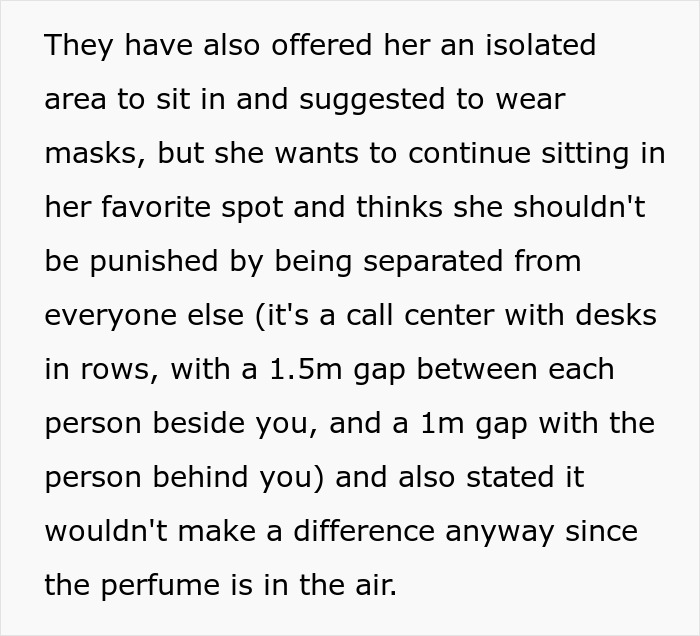
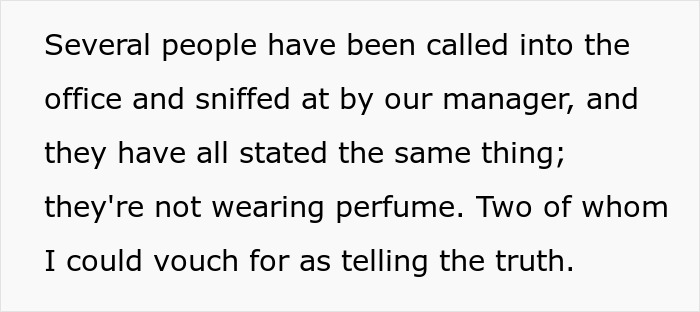

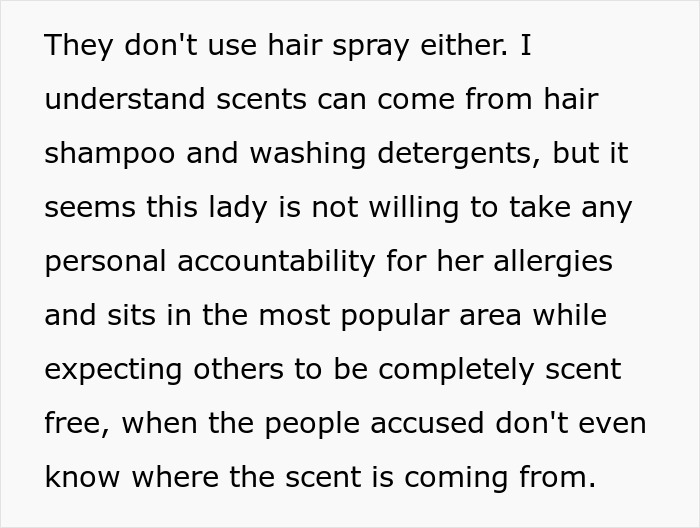

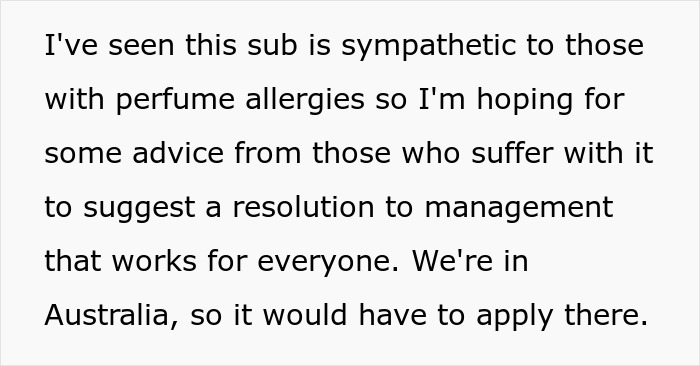


















Post Comment